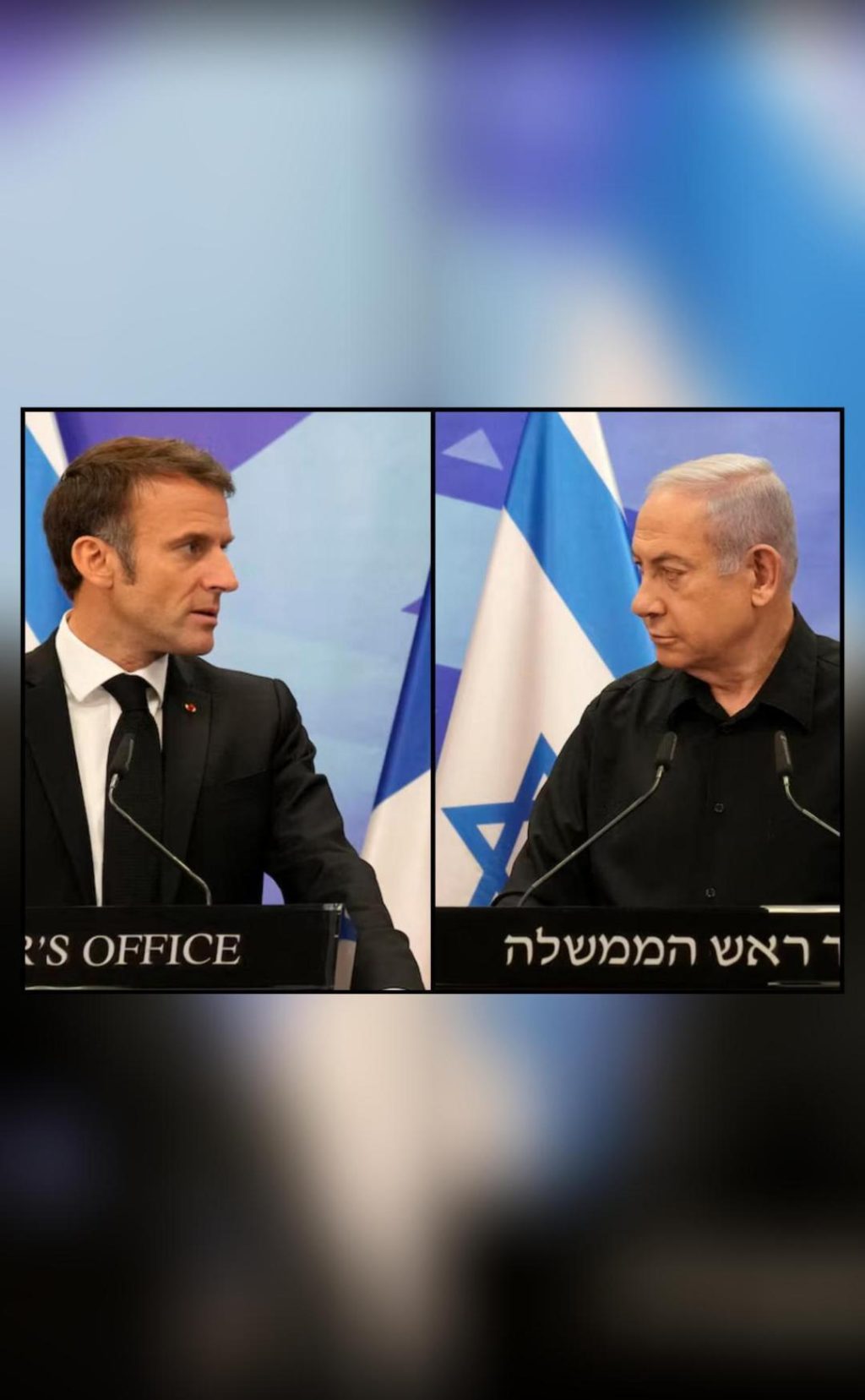
Supporting Terrorist Group: Netanyahu on Macron’s Gaza Aid Remarks
The ongoing conflict between Israel and Palestine has been a subject of intense international scrutiny, with world leaders weighing in on the issue. Recently, French President Emmanuel Macron made headlines by condemning Israel’s blockade of aid to Gaza, sparking a heated response from Israeli Prime Minister Benjamin Netanyahu. In a strongly worded statement, Netanyahu accused Macron of “choosing to stand with a murderous Islamist terrorist organisation” and demanded that he reconsider his stance.
The controversy began when Macron called for an end to Israel’s blockade of Gaza, arguing that it was exacerbating the humanitarian crisis in the region. In response, Netanyahu’s office released a statement that accused Macron of supporting the terrorist group Hamas, which rules Gaza. The statement read, “Macron has once again chosen to stand with a murderous Islamist terrorist organisation. Instead of calling for the release of our hostages, Macron is once again demanding that Israel surrender and reward terrorism… Israel will not stop and won’t surrender.”
Macron’s comments were seen as a major escalation in the diplomatic row between France and Israel, with many interpreting them as a strong rebuke of Israel’s treatment of Palestinians in Gaza. The blockade, which has been in place since 2007, has led to widespread poverty, unemployment, and humanitarian crises in the region.
Netanyahu’s response, however, was seen as a deliberate attempt to paint Macron as a supporter of terrorism. The Israeli Prime Minister has long been accused of using divisive rhetoric to deflect criticism of Israel’s policies, and this latest statement is no exception.
Supporters of Macron argue that his comments were a legitimate attempt to address the humanitarian crisis in Gaza, which has been exacerbated by Israel’s blockade. They point out that the blockade has led to widespread poverty and unemployment, and that the situation is becoming increasingly dire.
Critics of Macron, on the other hand, argue that his comments were overly simplistic and failed to take into account the complexities of the conflict. They argue that Hamas is a terrorist organization that has repeatedly launched attacks against Israel, and that any attempt to support it is misguided.
The tension between France and Israel is not new, with the two countries having a long history of diplomatic disagreements. However, this latest row highlights the deep divisions that exist between the two nations, and the challenges that any attempt to broker a peace deal must overcome.
In the midst of this controversy, it is worth remembering that the situation in Gaza is a humanitarian crisis that requires a collective response from the international community. Any attempt to address the crisis must take into account the complex political and security dynamics at play, while also prioritizing the welfare of the Palestinian people.
Ultimately, the debate over Gaza aid and the blockade is a critical one, and it is essential that world leaders approach it with nuance and sensitivity. As the situation continues to unfold, it is clear that the road ahead will be long and difficult, but it is also clear that the stakes are too high to ignore.



